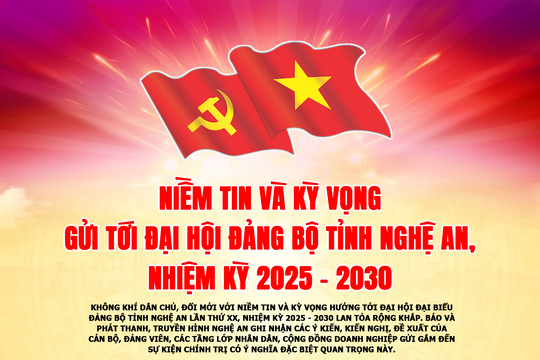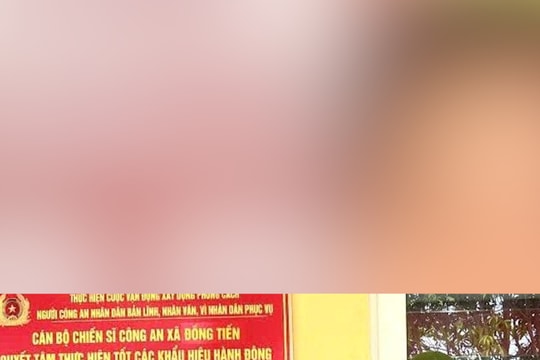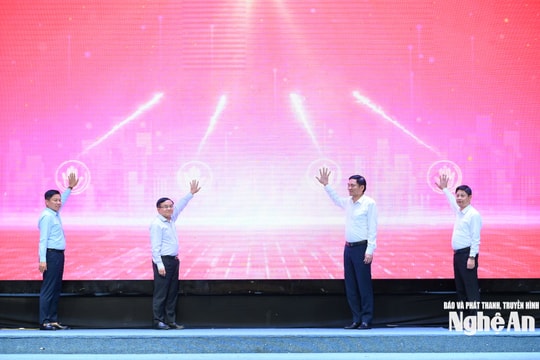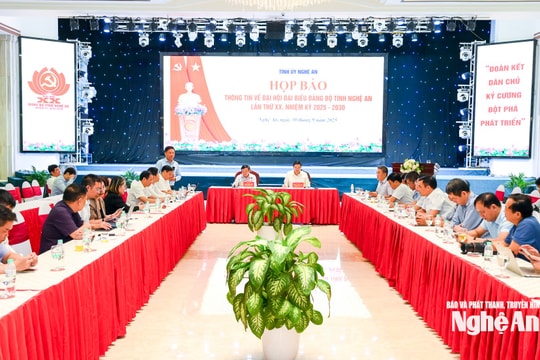Formal criticism within the Party will lead to personal degradation.
Associate Professor Dr. Ho Tan Sang believes that criticism and self-criticism are still formalities, leading to the consequence of individual degradation.
The Politburo has given instructions on reviewing self-criticism and criticism in conjunction with the implementation of Resolution 4 of the 12th Central Committee. And this February, the Politburo plans to organize inspection teams to implement Resolution 4 of the 12th Central Committee; assign Politburo members to directly attend and direct the review of self-criticism and criticism at a number of Party committees and organizations. Also in February, all Party organizations directly under the Central Committee must complete this review session.
People hope to see positive and substantial changes in the Party, so that our Party can be truly clean and strong, through this necessary political activity in the Party organizations directly under the Central Committee. However, how to make criticism and self-criticism become a sharp weapon to prevent degradation, push back "self-evolution" and "self-transformation". VOV reporter interviewed Associate Professor Dr. Ho Tan Sang - Academy of Politics Region 3 on this issue.
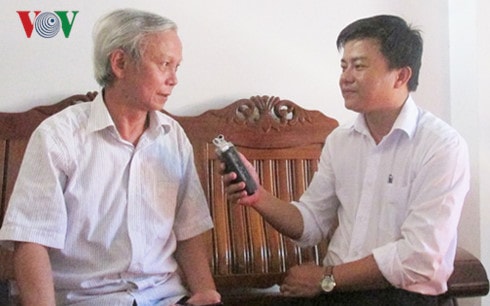 |
| Associate Professor Dr. Ho Tan Sang answered an interview with VOV reporter |
PV:Sir, the Politburo has just directed the review of self-criticism and criticism in conjunction with the implementation of Resolution 4 of the 12th Central Committee, strengthening Party building and rectification. Could you analyze the urgency of this activity within the Party?
Mr. Ho Tan Sang:Party building and Party rectification is a regular task for any political party and our Party has always paid attention to it since its founding.
In addition to the achievements we have made, we are also facing many challenges. Among them are internal challenges that the Resolution of the 4th Central Conference of the 12th tenure pointed out, namely "self-evolution" and "self-transformation".
Therefore, how to prevent and handle such degradation is a matter of survival for the regime and the ruling party. Its urgency lies there.
PV:One of the manifestations of political and ideological degradation that the Resolution of the 12th Central Committee, Session 4, pointed out is: In self-criticism, there is still concealment, not daring to admit shortcomings; when there are shortcomings, there is a lack of sincerity, not voluntarily accepting discipline. In criticism, there is deference, avoidance, fear of conflict, seeing the right but not defending, seeing the wrong but not fighting; taking advantage of criticism to flatter, please each other or slander, defame, criticize, and judge others with impure personal motives.
Pointing out this manifestation of degradation means that the Party has clearly seen that many Party organizations and bases have criticized and self-criticized, but it is done in a formal, perfunctory manner. In your opinion, what consequences have such criticism and self-criticism led to?
Mr. Ho Tan Sang:That statement has its consequences. Self-criticism and criticism are one of the principled requirements in Party building. This, up to now, we have always put forward in Party activities.
In fact, in recent times, criticism and self-criticism have been a formality, leading to the degradation of each individual. Because each individual does not realize his responsibility for his mistakes, he takes advantage of them to put down others. At the same time, there are also manifestations of fear of conflict and fear of criticism because of fear of touching power. In fact, the mechanism to protect those who bravely fight against those who abuse power is not clear.
The consequence is that each Party organization loses its fighting power, each individual shows signs of being too leftist, sometimes too rightist. For each Party member, these are signs of self-degeneration from within.
PV:There is a situation where some leaders do not listen to criticism. Whenever weaknesses are mentioned, they can get angry or make assumptions... gradually, people do not dare to speak up anymore. In your opinion, is this behavior dangerous for the Party?
Mr. Ho Tan Sang: This is too dangerous. Psychologically, people prefer praise to criticism. Criticism and suggestions are both a science and an art. Perhaps our system is not clear, so it is extremely difficult to give suggestions and criticism, especially to those in positions of power and authority. This has been seen for a long time in practice and theory. So, why is it difficult to overcome?
I think the root cause is that there is no mechanism or institution to control the power of those in power. So when they have power, they act arbitrarily, they use power to impose and force others to obey, even though they may have committed mistakes.
Having struggled many times and in reality, people often conclude that without a mechanism or institution to protect them, "avoid it". That is what destroys the struggle within the Party, leading to the Party's weak fighting power.
PV:To effectively carry out self-criticism and criticism in Party activities, the issue is to correctly perceive the purpose of this activity. What role does the head of the Party organization conducting the review play in the quality of a criticism and self-criticism activity, sir?
Mr. Ho Tan Sang:The leader is the soul of the system. In an organization, the apparatus has two things to handle, two things to complete. The first is to complete the institution, that is, to complete the regulations and rules to consider the responsibility and dedication of each individual.
Besides institutions and mechanisms, the role of people, especially the leader, is extremely important. If you are open-minded, it will be different; if you are bureaucratic, arrogant, and show signs of individualism, it will be different. Therefore, in the current Party building work, our Party always pays attention to setting an example for the leader.
Studying and following the example, ideology and morality of Uncle Ho is one of the important requirements. The leader must set an example, saying what he does. I think the leader plays the role of the soul of the whole system. If he has a good personality and qualities and, together with the Resolutions, guidelines and policies of the Party, he will create a healthy organization. Even if there is a good system, if the leader has problems, the system and organization will have problems immediately.
PV:How do you feel about the recent actions taken by Party members who used to be high-ranking officials regarding the determination of the Politburo and the 12th Party Central Committee to rectify and purify the Party?
Mr. Ho Tan Sang:Our Party's political determination in Party building and rectification has existed for a long time. What is important is which solutions demonstrate that determination in practice, and we must seek to experiment with many solutions.
Disciplining responsible officials leading an organization is a manifestation and way of demonstrating the Party's determination. That creates an effect, on the part of party members and the masses without positions or power, they feel that this way of doing things has a great deterrent meaning. As for the disciplined person, they also feel that retirement does not mean a safe landing. That deters those who currently have power so that they know to limit themselves. Next, we must do things more drastically, not just stop at 1-2 cases./.
PV: Thank you sir./.
According to VOV

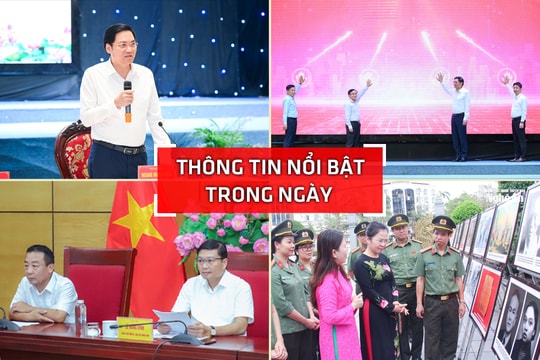
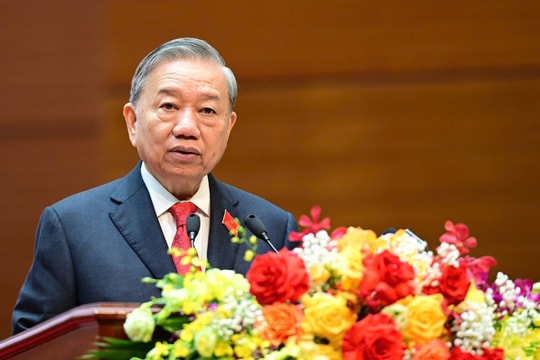
.jpg)
